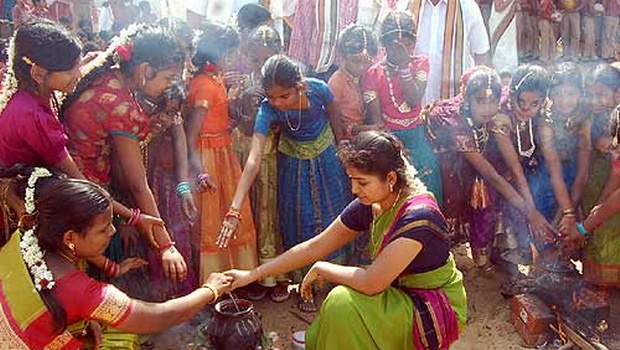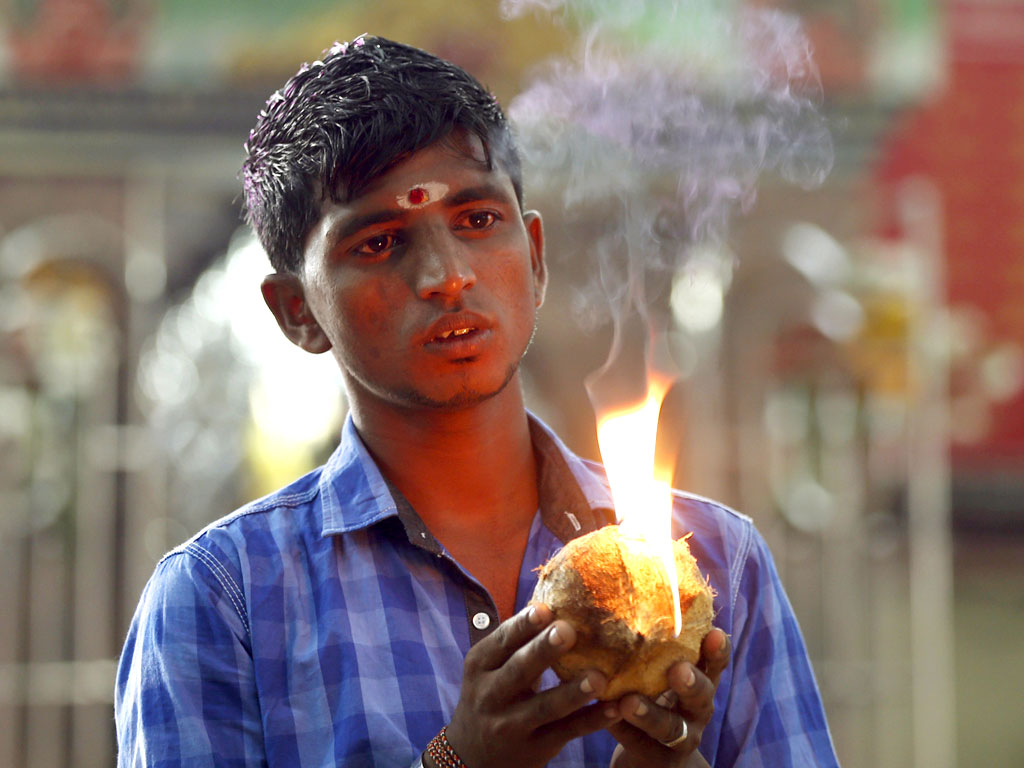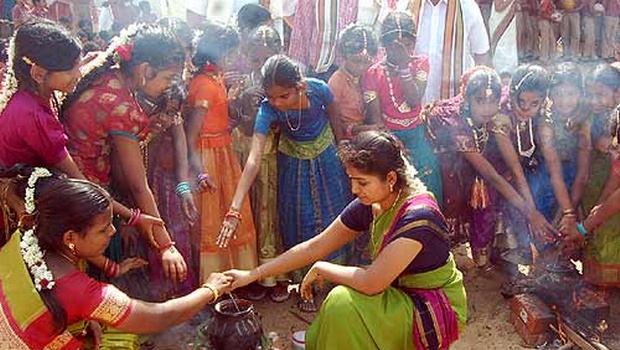
Pongal
One such harvest festival that roots South India with its ethical and traditional spirit is the Tamilian festival of Pongal or even popularly known as Thai Pongal. This festival which is generally celebrated at the end of the harvest season often shares quite a bit of similarity with the festival of Makara Sankranthi. Not only do the citizens of Tamil Nadu rejoice in the magical essence of this festival, but also the residents of Sri Lanka widely celebrate this harvest occasion.

Back
Background
The word Pongal is significantly associated with the procedure of rice and milk getting boiled over, which is conducted during the Thai season. This festival goes way back thousands of centuries or even more, as believed by some, which references made to the Chola Empire during the Medieval era. During that period, this festival which was originally known as Tamizhar Thirunaal was considered as a tribute dedicated as a gesture of Thanksgiving to the Sun God for providing abundant harvest opportunities to the agricultural farmland.
The Making
There are different types of Pongal which are celebrated in South India; namely Thai Pongal dedicated to the harvest land, Maatu Pongal dedicated to the cattle and Kaanum Pongal felicitating married sisters.
The atmosphere during this festival is enhanced by radiance spread by the decorations with mango and banana leaves in every tamilian home. Colorful, unique and ethnic rangolis (design patterns) are drawn on the doorstep and the threshold of the house, producing a magnetic effect.
Style and Attire
On this festive day, the women of the house are traditionally dressed in kanjeevaram sarees which are artistically embroidered in fine fabrics of silk using golden shimmering threads. Heavy gold and diamond cut jewelry is donned by the women along with exquisite nose and toe rings. Men are dressed in ethnic gold bordered milky white dhotis and white kurtas.

Kanchipuram Saree in Orange
Previously, this festival started off with the boiling procedure of rice along with jaggery and milk filled in traditional clay pots. The entire atmosphere echoed the words of ‘Pongalo Pongal’ with a conch blow, the very minute the milk overflowed the vessel, which was considered very auspicious symbolizing good luck. The cooked rice was then offered to the sun God and later on distributed to the people present for the celebration. A galore of sweets and savories are prepared, thus ranking up the enjoyment quotient higher. Then gifts are showered upon the youth by the elders, followed by folk dances, music, and other entertainment.
Present Day Scenario and Global Appeal
It is the older generation who has still managed to keep the tradition alive up to a certain extent, in spite of the changing times and trends. Today’s generation is more into visiting the temples in the morning and organizing outdoor lunches and dinners on such occasions. The internet world has also advanced in introducing the virtual version of celebrations of the Pongal festival. It can also be said that the essence of bonding is well retained and preserved for all times to come.
References
Categories: Festivals, Weddings & Festivals

